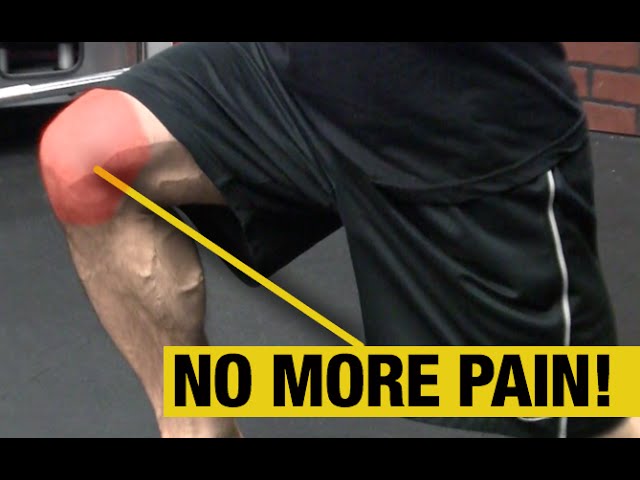Train without pain and see faster results with ATHLEAN-X
http://athleanx.com/x/less-pain-equals-more-gains
Knee pain is one of the most common side effects when doing lunges. In fact, leg workouts are compromised most often by discomfort in the knees when doing the very leg exercises that are supposed to be helping in the first place. In this video, I show you how to correct one of the most common sources of knee joint pain in your leg workout, the forward lunge.
The forward lunge is particularly harsh on the knee for a variety of reasons. First, with the foot beginning the exercise in an open chain position, there is less stability provided at the knee joint itself. An open chain leg exercise is one in which the working foot is not in contact with the ground or a similar stabile surface. As you can see in the initial phase of the lunge, your foot is in the air. Combine this with the fact that the knee is in a partially flexed position and you realize that there are increased eccentric loads being placed on both the quads and the tendons of the knee.
When your foot finally makes contact with the ground, the ground reaction forces are directed up through the leg and borne by the already eccentrically stretched knee. For someone that is suffering from patellofemoral knee pain, this can feel like a sharp knife being driven into the knee joint.
The next thing you want to consider is that the direction of the lunge, being forward, is placing a natural vector of the force anteriorly. This acts to drive more load into the anterior structures of the kneecap and puts additional strain on the patellar tendon and patella underneath.
In a reverse lunge however, the knee on the working leg is supported from the very beginning of the exercise. With the foot placed in a closed chain position, you don’t have to worry about the shock factor that occurs when the foot strikes the ground as in the anterior lunge. The force is actually directed more vertical and back which helps to load the hip and the quad better, making this an even better exercise for helping to build bigger quads.
Finally, with the hip slightly more flexed than in an anterior lunge, you help to put the rectus femoris on slack which eases some of the strain being borne across the patellar tendon in the knee. This helps to alleviate some of the knee pain commonly found when doing the regular lunge.
As you can see, you don’t have to stop lunging all together if you get knee pain when doing lunges. You just have to alter the direction in which you’re lunging. It’s these kinds of modifications that make the difference between training and just working out. If you want to start training, and training like an athlete then head to http://athleanx.com and get the physical therapist created ATHLEAN-X Training System.
For more videos on how to fix knee pain with squatting and also what causes patellar tendonitis, be sure to subscribe to our channel here on youtube at http://youtube.com/user/jdcav24
